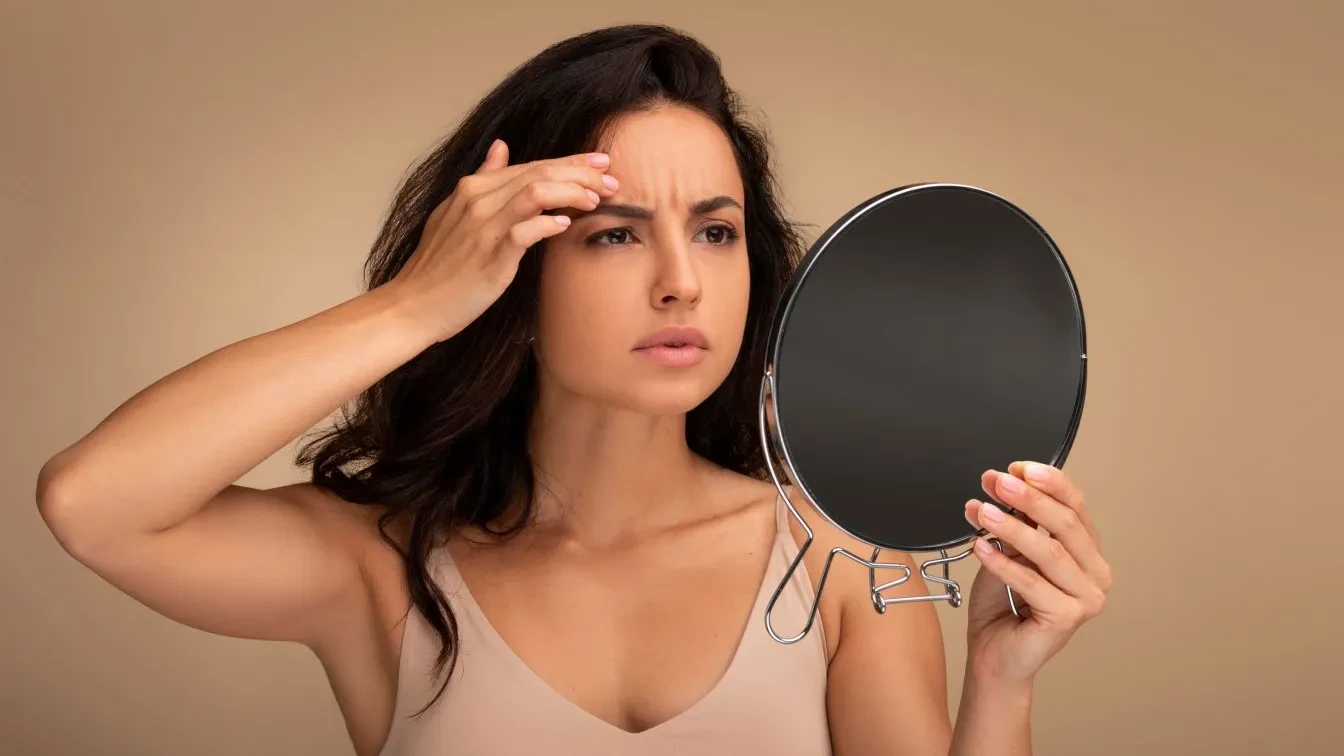The Science Behind Retinol and Skin Flaking: What You Need to Know

EXTRA 5% OFF ON PREPAID

Retinol has become a popular ingredient in skincare products, touted for its ability to improve skin texture, reduce wrinkles, and even out skin tone. However, one common side effect that many people experience when using retinol is skin flaking. In this blog post, we will explore the science behind retinol and skin flaking and provide tips on how to manage and reduce this side effect effectively.
Retinol is a derivative of vitamin A, a powerful antioxidant that is essential for maintaining healthy skin. It is widely used in skincare products due to its ability to promote cell turnover and collagen production, resulting in smoother and younger-looking skin. Retinol comes in different forms, including retinyl palmitate, retinyl acetate, and retinyl propionate, each with varying strengths and efficacy.
Retinol works by binding to specific receptors in the skin, which stimulates cell turnover and collagen synthesis. This process helps to slough off dead skin cells and promote the growth of new, healthy cells. Additionally, retinol has been shown to regulate sebum production, making it an effective treatment for acne. It also helps to fade hyperpigmentation and reduce the appearance of wrinkles.
Skin flaking occurs as a natural part of the skin’s exfoliation process. Normally, dead skin cells are shed gradually, making way for new cells. However, when retinol is introduced, it accelerates this process, causing a more rapid turnover of cells. This increased cell turnover can lead to excessive shedding and flaking of the skin.
Several factors contribute to the severity of skin flaking with retinol use. These include the concentration and frequency of retinol application, individual skin sensitivity, and the strength of the retinol product being used. It is important to note that skin flaking is a temporary side effect and should subside as the skin adjusts to retinol. Read here about how to manage retinol for sensitive skin Retinol for Beginners with Sensitive Skin
To minimize skin flaking, it is crucial to start with a low concentration of retinol and gradually increase the strength over time. This allows the skin to acclimate to the ingredient and reduces the likelihood of excessive flaking. Additionally, it is important to follow proper usage instructions, such as applying retinol at night and using a moisturizer to hydrate the skin.
There are also several tips and tricks that can help manage and reduce skin flaking caused by retinol. Firstly, it is recommended to exfoliate the skin gently with a mild scrub or a chemical exfoliant to remove dead skin cells. This can help prevent the buildup of flaky skin. Secondly, incorporating a hydrating serum or moisturizer into your skincare routine can help alleviate dryness and flaking. Finally, using a gentle cleanser and avoiding harsh skincare products can help maintain the skin’s moisture barrier. Read more about Perfect Retinol Dosage and Frequency here.
1. What are some common misconceptions about retinol and skin flaking?
One common misconception is that skin flaking is a sign that the retinol is working. In reality, excessive flaking can indicate that the retinol concentration or frequency of use is too high.
2. Can skin flaking be completely avoided when using retinol?
While it is difficult to completely avoid skin flaking, starting with a low concentration of retinol and gradually increasing it can minimize the severity of flaking.
3. Are there any specific products or ingredients that can help alleviate skin flaking caused by retinol?
Hyaluronic acid, ceramides, and niacinamide are ingredients that can help hydrate and soothe the skin, reducing the appearance of flaking.
4. How long does it typically take for the skin to adjust to retinol and reduce flaking?
It can take anywhere from a few weeks to a few months for the skin to adjust to retinol. Consistency and patience are key.
5. Can skin flaking be a sign of an adverse reaction to retinol?
In some cases, excessive skin flaking, redness, and irritation can be a sign of an adverse reaction to retinol. If these symptoms persist or worsen, it is recommended to consult a dermatologist.
Retinol is a powerful ingredient that offers numerous benefits for the skin. However, it is important to understand the science behind retinol and the potential side effect of skin flaking. By starting with a low concentration, gradually introducing retinol, and following proper usage instructions, you can effectively manage and reduce skin flaking. Remember, the key is to embrace the benefits of retinol while taking steps to maintain a healthy and hydrated complexion.